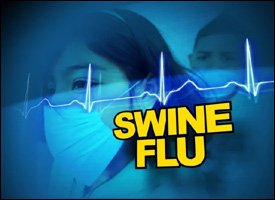
Swine Flu Takes First Victim In St. Kitts – Nevis
Charlestown, Nevis
July 27th, 2009
In keeping with its policy of providing accurate and timely health information, the Ministry of Health issues the following H1N1 update.
On Friday July 24th 2009, the Ministry of Health of St. Kitts and Nevis received the results of two more confirmed cases of Pandemic H1N1 from CAREC. Both were female nationals, aged 21 and 28 years respectively, with no recent travel.
The former did not require medication and hospitalization. The latter was the Federation’s first death. The Ministry of Health takes this opportunity to extend condolences to the family of the deceased.
The deceased presented to JNF Hospital in severe condition and passed within 36 hours of admission despite intensive care including antiviral medication and other treatments.
The first death due to H1N1 is new development. Consistent with the International Health Regulations (IHR), the World Health Organization (WHO) was notified.
There is no need for alarm or panic. The vast majority of persons with H1N1 experience mild illness and recover quickly without medication. There have been several such cases in the Federation.
The health system’s response remains unchanged. The primary goals are early detection of cases in the resident community, prevention of virus transmission through personal hygiene measures, timely and effective intervention of persons who are high risk for complications, and information sharing.
While most illnesses due to H1N1 are mild, there is the possibility of severe illness in persons with the certain conditions that are considered high risk. High risk conditions include:-
1. Asthma and other lung problems
2. Diabetes and other metabolic conditions
3. Weakened immunity due to conditions such as HIV, Sickle Cell Anemia, Cancer, Kidney Disease and Liver Disease
4. Pregnancy
5. Children under 5 years
6. Elderly 65 years and older
7. Obesity
High risk defines groups of persons whose immune system may not be as robust as normal because of underlying conditions. High risk does not mean that severe illness is automatic in every high risk person.
The key public advice is unchanged:
Any person with flu-like illness must stay at home and contact their personal physician or community health center for advice.
Any person with flu-like illness plus breathing difficulty, weakness or dehydration, must seek medical attention at the nearest hospital. In such case, a family member or friend should call ahead to alert the hospital staff of your imminent arrival.
To prevent spread is to cover your cough and sneeze, and wash your hands with soap and water.
Protection against illness means Good Nutrition & Hydration, Personal Hygiene & Community Sanitation, Rest & Recreation, and Vaccination. Vaccine is expected in 4 ““ 6 months; the other protective measures are individual and family obligations.
Antiviral medication is available to be prescribed to persons who are deemed by a medical doctor to need it.